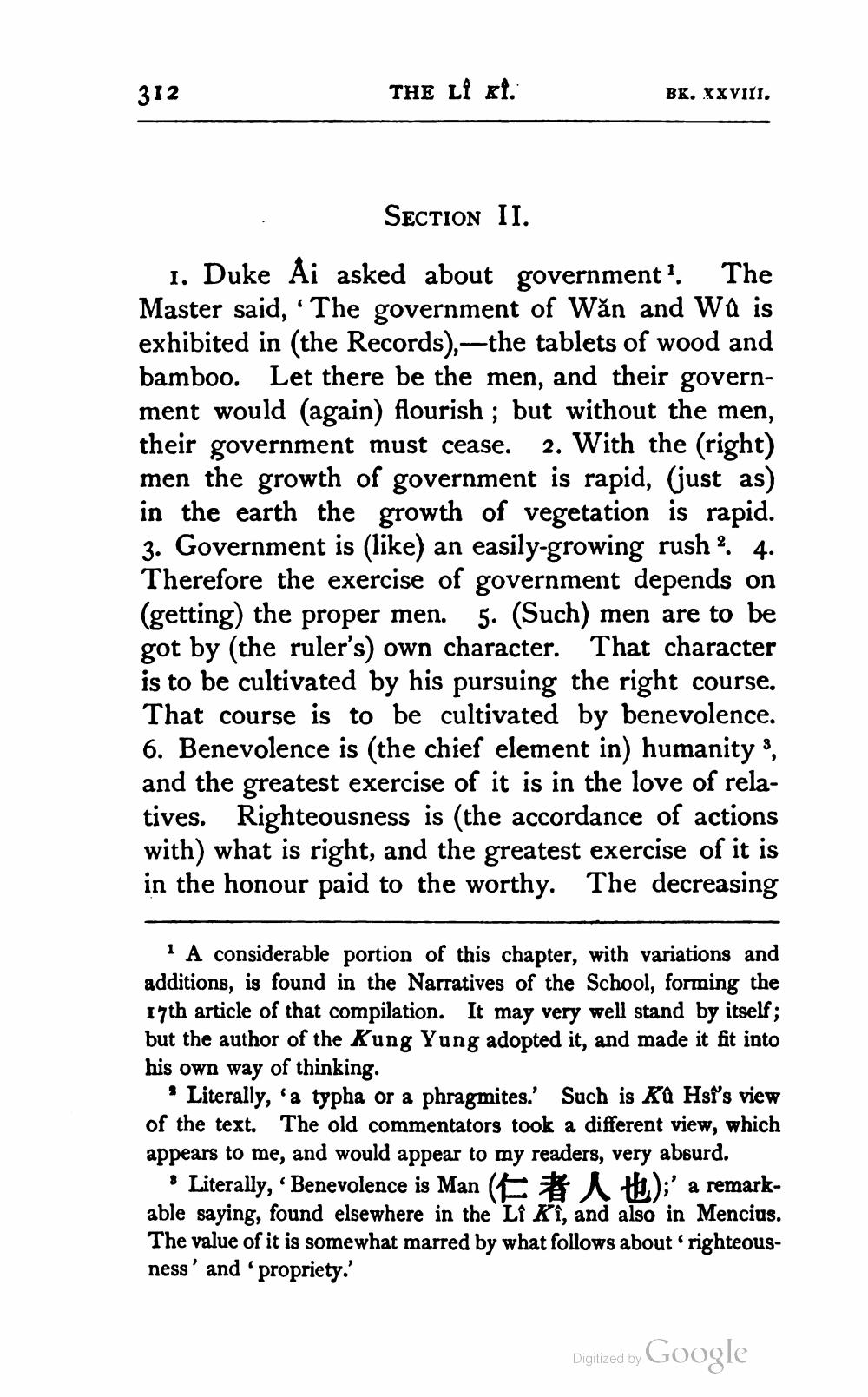________________
312
THE LI Kİ.
BK. XXVIII.
SECTION II.
1. Duke Ai asked about government1. The Master said, 'The government of Wăn and Wû is exhibited in (the Records),-the tablets of wood and bamboo. Let there be the men, and their government would (again) flourish; but without the men, their government must cease. 2. With the (right) men the growth of government is rapid, (just as) in the earth the growth of vegetation is rapid. 3. Government is (like) an easily-growing rush2. 4. Therefore the exercise of government depends on (getting) the proper men. 5. (Such) men are to be got by (the ruler's) own character. That character is to be cultivated by his pursuing the right course. That course is to be cultivated by benevolence. 6. Benevolence is (the chief element in) humanity 3, and the greatest exercise of it is in the love of relatives. Righteousness is (the accordance of actions with) what is right, and the greatest exercise of it is in the honour paid to the worthy. The decreasing
1 A considerable portion of this chapter, with variations and additions, is found in the Narratives of the School, forming the 17th article of that compilation. It may very well stand by itself; but the author of the Kung Yung adopted it, and made it fit into his own way of thinking.
2 Literally, 'a typha or a phragmites.' Such is Kû Hsi's view of the text. The old commentators took a different view, which appears to me, and would appear to my readers, very absurd.
Literally, 'Benevolence is Man (t);' a remarkable saying, found elsewhere in the Lî Kî, and also in Mencius. The value of it is somewhat marred by what follows about 'righteousness' and 'propriety.'
Digitized by
Google




